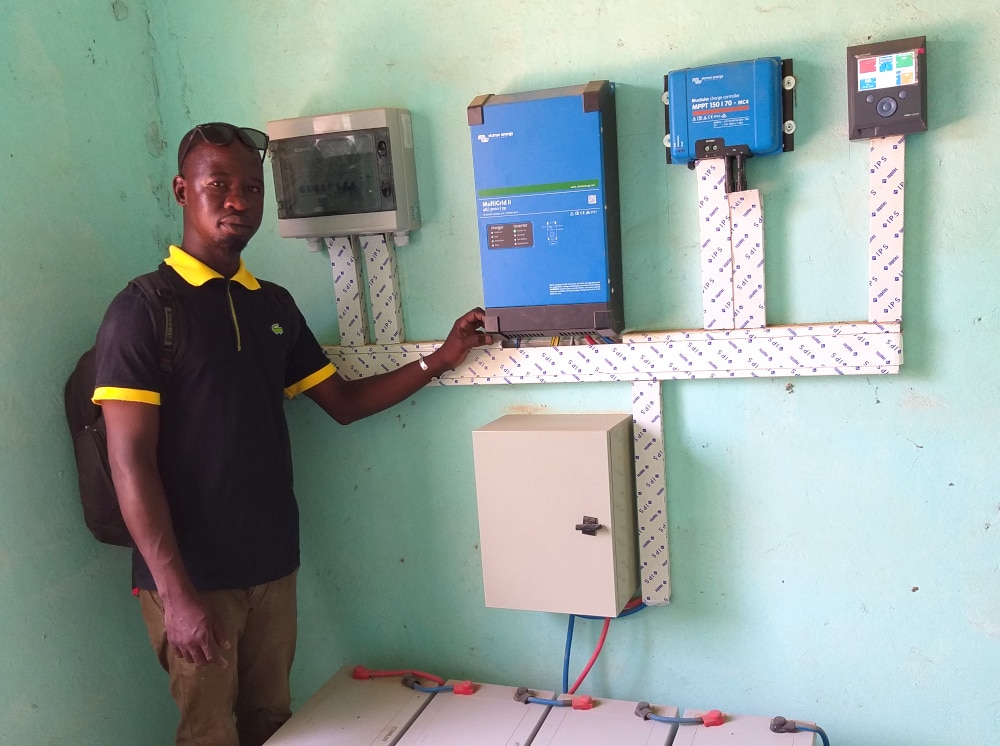Improving health center and maternity unit access to essential utilities in Mali
This project aims to step up the ability of community health centers and maternity units in southern Mali to respond to emergencies, and increase their resilience by making sustainable improvements to their access to essential utilities like water and power.
Background and challenges
Mali has faced a number of crises over the past few years—security, political, food—and the 2020 health crisis has only compounded the situation. The COVID-19 pandemic has had a profound effect on the country, and its indirect effects on the economy and society have the potential to be even more devastating than its direct effects.
This pandemic is taking place at a time when the health system in Mali is already weak, and therefore disruptions have greater consequences. Today, 23% of the country’s health care structures are not operational, and many of the needs of most at-risk populations are not being met because of poor access to basic health services.
At the same time, the sector is confronted with other health urgencies such as measles and malaria.

Objectives
In this situation, the priority is increasing the resilience and the ability of community health infrastructures, including maternity units, to respond—both in terms of accommodation and the basic services offered.
A rapid review of data collected from the technical teams and development partners working in the region allowed us to bring into focus three main areas of action:
- Infrastructures with highly variable access to power, directly influencing the quality of the first level of care offered: maternity units without lighting, health care centers with rudimentary lighting, little available power services (to supply birthing lamps , heating, and water). The nonoperational condition of these existing power systems has been recorded, underscoring the necessity of durable solutions to manage and maintain them.
- Potable water supply is often inexistent in health care centers as few are equipped with supply lines on site, requiring staff and patient provision to be assured through pumps or village wells outside the confines of the centers, posing a problem for transport, sanitation and the potential spread of diseases.
These two aspects weigh heavily on the ability of community health centers and maternity units to provide the services required by the population.
The project therefore targets actions that will have quick, measurable impacts:
- to improve the conditions for patient intake and care administration at community health care centers and maternity units by providing better access to basic utilities (water and power)
- to improve medical team working conditions
- to diversify the types of care available at community health care centers and maternity units
- to treat 140,000 patients per year at the 13 health care centers and maternity units in the project’s target locations, of which 55% are women.
- to positively impact the population base of 240,000 people
Partners
The project is being conducted in keeping with existing partnerships (local authorities, decentralized technical teams) and the actions initiated in response to the COVID-19 crisis on other projects currently in progress.
As needed, Geres will call upon partner organizations which are experts in the fields of water and health, to provide a methodological perspective on the actions. It will rely on partnership with local federations of community health associations for each sphere of intervention, in order to guarantee consistency with the actions in progress.
FINANCIAL PARTNER

Agence Française de développement
Engagé pour la solidarité climatiqueEn savoir plus
WOULD YOU LIKE TO TAKE ACTION
AND SUPPORT WHAT WE DO?
Tell us who you are and find your means of action.
